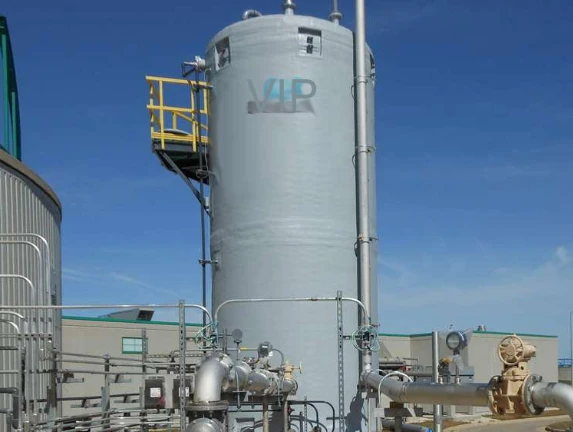
-
 Afrikaans
Afrikaans -
 Albanian
Albanian -
 Amharic
Amharic -
 Arabic
Arabic -
 Armenian
Armenian -
 Azerbaijani
Azerbaijani -
 Basque
Basque -
 Belarusian
Belarusian -
 Bengali
Bengali -
 Bosnian
Bosnian -
 Bulgarian
Bulgarian -
 Catalan
Catalan -
 Cebuano
Cebuano -
 China
China -
 China (Taiwan)
China (Taiwan) -
 Corsican
Corsican -
 Croatian
Croatian -
 Czech
Czech -
 Danish
Danish -
 Dutch
Dutch -
 English
English -
 Esperanto
Esperanto -
 Estonian
Estonian -
 Finnish
Finnish -
 French
French -
 Frisian
Frisian -
 Galician
Galician -
 Georgian
Georgian -
 German
German -
 Greek
Greek -
 Gujarati
Gujarati -
 Haitian Creole
Haitian Creole -
 hausa
hausa -
 hawaiian
hawaiian -
 Hebrew
Hebrew -
 Hindi
Hindi -
 Miao
Miao -
 Hungarian
Hungarian -
 Icelandic
Icelandic -
 igbo
igbo -
 Indonesian
Indonesian -
 irish
irish -
 Italian
Italian -
 Japanese
Japanese -
 Javanese
Javanese -
 Kannada
Kannada -
 kazakh
kazakh -
 Khmer
Khmer -
 Rwandese
Rwandese -
 Korean
Korean -
 Kurdish
Kurdish -
 Kyrgyz
Kyrgyz -
 Lao
Lao -
 Latin
Latin -
 Latvian
Latvian -
 Lithuanian
Lithuanian -
 Luxembourgish
Luxembourgish -
 Macedonian
Macedonian -
 Malgashi
Malgashi -
 Malay
Malay -
 Malayalam
Malayalam -
 Maltese
Maltese -
 Maori
Maori -
 Marathi
Marathi -
 Mongolian
Mongolian -
 Myanmar
Myanmar -
 Nepali
Nepali -
 Norwegian
Norwegian -
 Norwegian
Norwegian -
 Occitan
Occitan -
 Pashto
Pashto -
 Persian
Persian -
 Polish
Polish -
 Portuguese
Portuguese -
 Punjabi
Punjabi -
 Romanian
Romanian -
 Russian
Russian -
 Samoan
Samoan -
 Scottish Gaelic
Scottish Gaelic -
 Serbian
Serbian -
 Sesotho
Sesotho -
 Shona
Shona -
 Sindhi
Sindhi -
 Sinhala
Sinhala -
 Slovak
Slovak -
 Slovenian
Slovenian -
 Somali
Somali -
 Spanish
Spanish -
 Sundanese
Sundanese -
 Swahili
Swahili -
 Swedish
Swedish -
 Tagalog
Tagalog -
 Tajik
Tajik -
 Tamil
Tamil -
 Tatar
Tatar -
 Telugu
Telugu -
 Thai
Thai -
 Turkish
Turkish -
 Turkmen
Turkmen -
 Ukrainian
Ukrainian -
 Urdu
Urdu -
 Uighur
Uighur -
 Uzbek
Uzbek -
 Vietnamese
Vietnamese -
 Welsh
Welsh -
 Bantu
Bantu -
 Yiddish
Yiddish -
 Yoruba
Yoruba -
 Zulu
Zulu
Innovative Solutions for Storage with Fiberglass Field Tanks in Modern Applications
The Versatility and Advantages of Fiberglass Field Tanks
In today's modern world, the need for efficient and durable storage solutions has never been greater. Industries ranging from agriculture to oil and gas have long sought innovative ways to store various liquids, and fiberglass field tanks have emerged as a popular choice. These tanks offer a combination of strength, lightweight construction, and corrosion resistance that makes them ideal for a range of applications.
What Is a Fiberglass Field Tank?
Fiberglass field tanks are storage solutions made from fiberglass-reinforced plastic (FRP), which consists of a polymer resin bound with glass fibers. This combination delivers a robust and versatile tank that can withstand harsh environmental conditions. Unlike traditional materials such as steel or concrete, fiberglass tanks are less affected by corrosion and chemical reactions, making them perfect for applications involving water, chemicals, and fuels.
Key Benefits of Fiberglass Field Tanks
1. Corrosion Resistance One of the primary advantages of fiberglass tanks is their excellent resistance to corrosion. In environments where tanks are exposed to moisture, chemicals, and extreme temperatures, fiberglass remains unaffected, ensuring a longer lifespan and lower maintenance costs. This is particularly beneficial for industries that handle caustic or acidic substances.
2. Lightweight and Easy to Transport Fiberglass tanks are significantly lighter than their steel or concrete counterparts. This lightweight characteristic allows for easier transportation and installation, reducing labor costs and logistical challenges. The ease of handling makes them suitable for remote locations where access might be difficult.
3. Durability Fiberglass tanks are designed to endure physical impacts and environmental stresses. Their construction allows them to resist cracking, fading, and deterioration over time. As a result, they maintain their structural integrity and usability across various applications.
fiberglass field tank

4. Flexible Design Options Fiberglass tanks can be produced in a variety of shapes and sizes, making them highly customizable to meet specific storage needs. Whether a business requires a small tank for water storage or a large tank for oil or chemicals, fiberglass can be molded to fit precise specifications. This flexibility extends to the tank's design, allowing for features like built-in fittings, vents, and access ports.
5. Environmental Considerations As industries increasingly prioritize sustainability, fiberglass tanks stand out for their eco-friendly attributes. The materials used in fiberglass production can often be recycled, and the tanks are designed to prevent leaks, minimizing environmental risks associated with storage.
Applications of Fiberglass Field Tanks
The versatility of fiberglass field tanks means they can be effectively utilized in various sectors. In agriculture, they are commonly used for the storage of water, fertilizers, and pesticides. Their durability and resistance to UV rays make them ideal for outdoor installations.
In the oil and gas industry, fiberglass tanks are frequently employed for the storage of crude oil, water, and chemicals, where traditional materials would typically corrode or react negatively. Additionally, these tanks are used in municipal water treatment facilities for storing potable water, allowing for safe distribution to communities.
Conclusion
Fiberglass field tanks represent an innovative solution to fluid storage challenges across multiple industries. With their corrosion resistance, lightweight nature, and customizability, they offer distinct advantages over traditional materials. As industries continue to evolve and demand efficient and sustainable storage methods, the fiberglass field tank will likely remain a trusted choice for years to come. Embracing this technology not only enhances operational efficiency but also aligns with a growing commitment to environmental stewardship.









